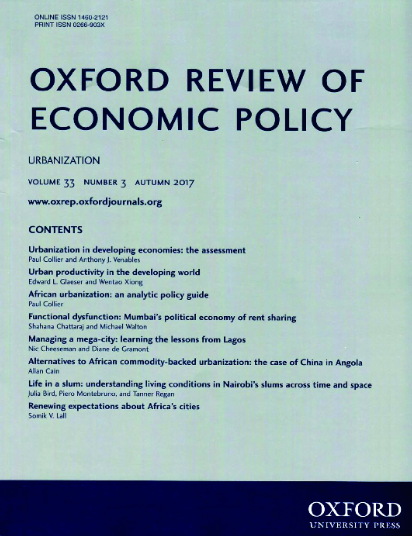碳标准时代的贸易:贸易、标准制定和气候机制如何合作?
IF 1.8
2区 经济学
Q2 ECONOMICS
引用次数: 1
摘要
监管合作对于提高碳相关产品法规和标准(CPRS)的质量、减少围绕这些法规和标准的贸易紧张局势、促进其一致性以及最终促进不同国家减排水平朝着普遍碳价格的方向趋同至关重要。在这篇文章中,我们探讨了如何利用贸易和与贸易有关的安排和机构来加强CPRS的监管合作。我们关注以下问题:在国际贸易体系中,何时、何地、如何开展CPRS监管合作,以及如何加强CPRS监管协作?在承认市场力量和大市场因素在碳标准调整中的关键作用的同时,我们认为,这种事实上的贸易驱动的调整需要从国家到国家的监管合作,以及政府机构与私人认证计划的合作,以帮助生产商,特别是发展中国家的生产商遵守。此外,应探讨多边气候变化和贸易机构之间进行更系统合作的潜力。这可能包括建立一个《气候公约》-世贸组织联合论坛,交流关于《气候变化框架公约》关键问题的政策相关技术和科学信息,并合并相关数据库。本文章由计算机程序翻译,如有差异,请以英文原文为准。
Trading in the era of carbon standards: how can trade, standard setting, and climate regimes cooperate?
Regulatory cooperation is indispensable for increasing the quality of carbon-related product regulations and standards (CPRS), reducing trade tensions over them, facilitating their alignment, and, eventually, promoting the convergence of different national emission reduction levels towards a universal carbon price. In this article, we explore how trade and trade-related arrangements and institutions can be used to intensify regulatory cooperation on CPRS. We focus on the following questions: when, where, and how does regulatory cooperation on CPRS take place within the international trading system, and what are the ways to strengthen regulatory cooperation on CPRS? While admitting the key role of market forces and the large market factor in the alignment of carbon standards, we argue that this de facto trade-driven alignment requires a steering from state-to-state regulatory cooperation, as well as cooperation of government agencies with private certification schemes in helping producers, especially from developing countries, to comply. Moreover, the potential for more systematic collaboration between the multilateral institutions for climate change and trade should be explored. This could include the establishment of a joint UNFCCC–WTO forum for the exchange of policy-relevant technical and scientific information on key issues surrounding CPRS and consolidation of the relevant database.
求助全文
通过发布文献求助,成功后即可免费获取论文全文。
去求助
来源期刊

Oxford Review of Economic Policy
ECONOMICS-
CiteScore
12.50
自引率
1.50%
发文量
41
期刊介绍:
The Oxford Review of Economic Policy is a refereed journal which is published quarterly. Each issue concentrates on a current theme in economic policy, with a balance between macro- and microeconomics, and comprises an assessment and a number of articles. It gives a valuable appraisal of economic policies worldwide. While the analysis is challenging and at the forefront of current thinking, articles are presented in non-technical language to make them readily accessible to all readers. The Oxford Review is aimed at a wide audience including government, business and policy-makers, as well as academics and students. It is required reading for those who need to know where research is leading.
 求助内容:
求助内容: 应助结果提醒方式:
应助结果提醒方式:


